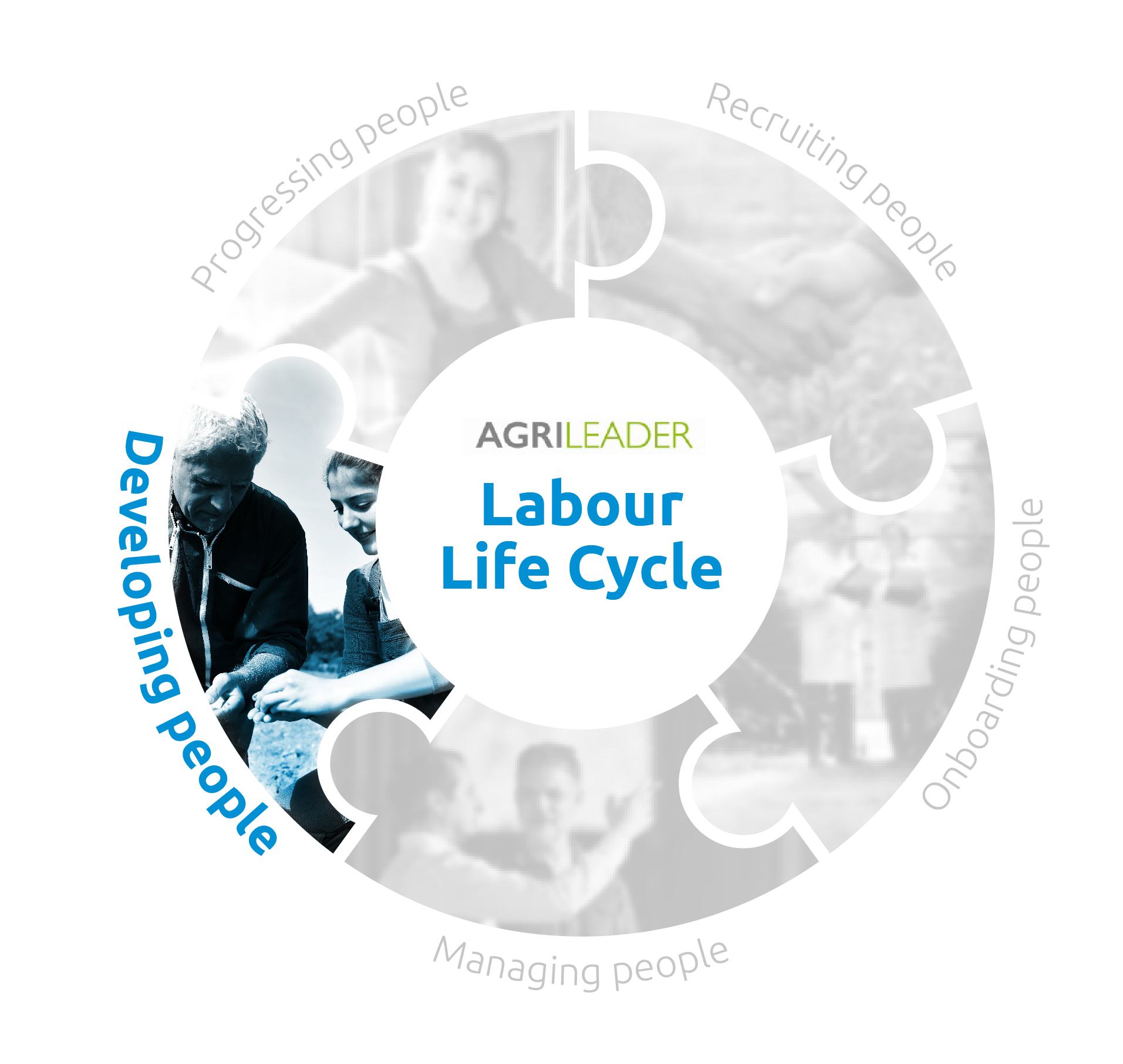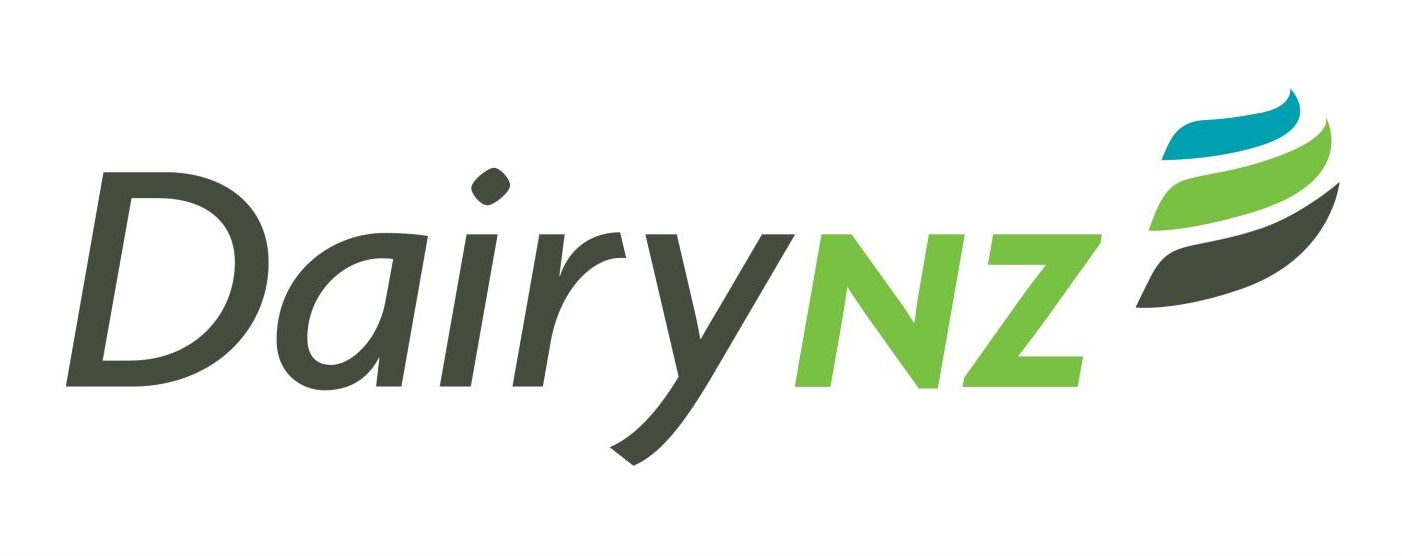- Home
- Developing people
Developing people
Even when you’ve got your full farm team up and running, you need to support your employees to keep learning and developing new skills. You will benefit from the high-quality work that comes with continued training – your employees will grow professionally and will be more likely to stay with you for longer.
Back to: Labour life cycle in agriculture
Continuing Professional Development (CPD)
Continuing Professional Development (CPD) is the process of constantly learning and developing new skills to perform a job well (or to eventually move into a different or more advanced role). A good CPD programme makes sure a person’s professional qualifications, practical skills and knowledge are kept up to date and expanded as they progress.
CPD is a structured, practical approach to learning, where any new skills or experience gained in the course of a job are tracked and documented. Developing your people’s skills and knowledge helps your business maintain a competitive advantage and become an Employer of Choice. It can also help you retain key staff.
There are all sorts of training available in the farming industry. You can use sites like Dairy Pro and Pig Pro to find more information on available courses, training events, clubs, discussion groups and other resources.

The value of continuing professional development for employers and employees
| Employer | Employee |
|---|---|
| Creates more focused and cost-effective training, development and learning that links directly to real business needs | Demonstrates commitment to continuous improvement aimed at increasing quality and reducing costs for the business |
| Promotes the importance of ongoing development and learning that improves staff morale and motivation | Highlights a person’s achievements and how their skills and knowledge will benefit the business |
| Helps identify potential candidates for career progression and promotion | Manages change more effectively by demonstrating flexibility and adaptability |
| Promotes your business as an Employer of Choice | Provides evidence of learning and improvement that can be used in appraisals, performance reviews and pay negotiations |
CPD options
| Training | Volunteering | Mentoring | Podcasts |
| Shadowing | Researching | Discussions | Conferences |
| Meetings | Job rotation | Secondments | Networking |
| E-learning | Webinars | Case studies | Coaching |
| Reading | Assessment | Presentations | Tests |
Coaching and mentoring
What is coaching?
Coaching is a set of skills that includes listening, acknowledging, questioning and providing corrective feedback. It keeps people on track.
Coaching:
- Clarifies where you are now and where you want to be
- Develops thinking, self-belief, confidence, understanding, ownership, empowerment, motivation, clarity and focus
- Leads to action, accountability and execution
What is mentoring?
Mentoring is a skill that provides perspective to the employee when they have exhausted their current level of knowledge, experience and thinking. It comes from a partnership of two people (mentor and mentee) working in a similar field or sharing similar experiences.
Mentoring is:
- A powerful personal development tool, used to empower, support and encourage people to manage their own learning
- Based on mutual trust, respect and confidentiality
You can use coaching and mentoring to create a culture of learning where the learner finds the solution. Both methods allow you to step back from solving the problems of others and approaching each interaction as an opportunity to grow people.
Nine ways to develop coaching and mentoring skills
- Identify what skills you need to learn to become an effective coach or mentor
- Work alongside an existing coach/mentor who suits your style and personality
- Meet with the agreed partner to establish your vision of where you want to be
- Clarify what you want to achieve and what outcomes you expect
- Work through a programme of regular one-to-one coaching and mentoring
- Ensure that your chosen partner continues to provide the right structure and resources for you
- Develop a specific action plan to which you or others can hold you accountable
- Take time to identify training programmes and workshops that develop identified skills and/or create awareness of knowledge gaps, for example, self-leadership, motivation, coaching/mentoring principles and coaching/mentoring skills
- Practice and make sure you get feedback from your coach
Differences between coach and mentor
- A mentor shares their knowledge, skills and/or experience to help another to develop and grow
- A coach provides guidance to someone on their goals and helps them reach their full potential

Leadership and management
Some of your employees will be interested in moving into management and leadership roles at some point. You can support them in their professional goals by staying up to date with development programmes aimed at more senior roles in agriculture.
Becoming a leader for the first time?
Leaders in all walks of life are challenged and stretched. You, or your employees, might be stepping into a leadership role for the first time. Watch our Talking Leaders webinar to hear a range of inspirational leaders talk about their leadership journeys, and get tips for your own.
What does an effective farm leader look like?
| Priorities | Traits of effective leaders | Desirable behaviours | Undesirable behaviours |
| Leading self | Growth mindset | Embrace change Persist in the face of setback See effort as the path to mastery Love to learn |
Defend current state Gives up easily See effort as fruitless or worse I know what I need to know |
| Leading self | Resilience | Socially adaptive Fearless Recognise power is in your hands Recharge your battery |
Inwardly focused Fearful/afraid Blame others for your predicament Micromanage Working excessively long hours |
| Leading people | Inspirational leadership |
Inspire a shared vision (for family and work) Be trustworthy |
Feeling trapped and stuck in a rut Low trust in others Expect others to think like you Critical |
| Leading people | Decision-making | Strategically aligned Evaluate risk and reward Distinguish between fact and opinion Decide without perfect information |
Over-reliance on emotion Impulsive Procrastination Overly optimistic or pessimistic |
| Leading business | Profit and entrepreneurial | Ignite your passion Cultivate your curiosity Convert problems into solutions Risk-taking but will never run out of cash |
Feeling trapped Expect things to stay the same Leave to others to sort out Perceive income and returns are fixed |
| Leading business | Detail consciousness | Critical questioner Improves standards and routines Builds better habits Uncovers blind spots |
Accepts problem |
You can read more about all aspects of leadership in agriculture on our main AgriLeader pages

Listen to our AgriLeader podcasts:
Using a skills matrix
A skills matrix is a visual tool that helps you map out your team’s existing skills or the skills required to complete a particular task. It helps you plan and manage projects effectively.
Add each of the jobs on your farm to the matrix, then use a colour coding, number or tick system to indicate the skill level of each worker against each of these jobs.
This will help you better understand the areas of expertise where you’re covered and the areas where you need to encourage further staff training.
DairyNZ has kindly given permission for AHDB to adapt their ‘People’ resources for use by the British dairy industry. We share a commitment to supporting the dairy industry and will collaborate to provide benefit to New Zealand’s and British dairy farmers.




